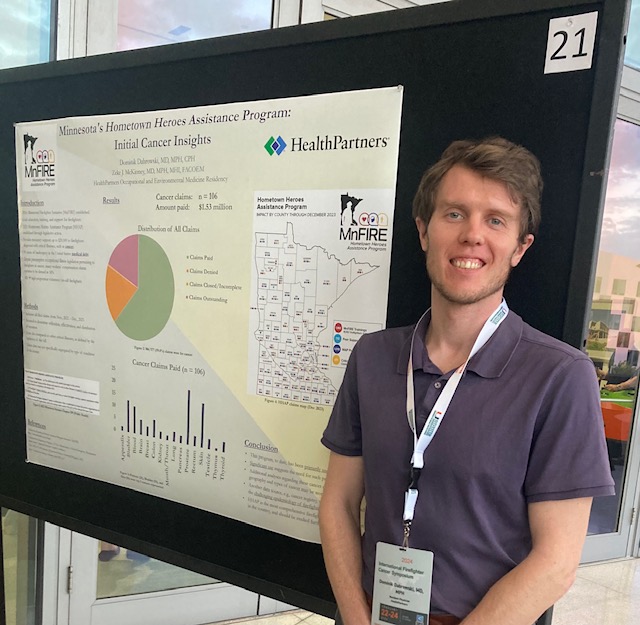 May 2024 MMA Advocacy Champion
May 2024 MMA Advocacy Champion
Dominik Dabrowski, MD, MPH
Resident
HealthPartners Occupational and Environmental Medicine Residency Program
1) Why is being an advocate so important?
Being an advocate means not only treating patients, but treating the community where they live. My practice involves preventative medicine, and I think this is the ultimate way of practicing preventative care. The government just has resources that we as individuals, or even collectively as hospital systems, don't have. If we utilize partnerships with government, it lets us improve our surroundings with greater impact.
2) What healthcare related issues have I advocated for over the past year?
Minnesota has a personal history with PFAS. Its local production has been a hot issue for years, but I think that's why we are an ideal place to begin the process of reducing and replacing to serve as a model for other states. I have advocated for PFAS substitution within the MMA. I also attended Physician's Day at the Capitol. Outside of MMA, I have also testified before the state house of representatives as a medical expert to reduce the required blood lead level for the department of health environmental intervention. My residency program and I have been discussing, with local politicians, how to improve funding for my specialty's residency training, Occupational and Environmental Medicine, which has been a shrinking specialty across the country over the past few decades. Finally, I have written several op-eds concerning heavy metal use and public health.
3) What advice would you have for others who are interested in advocacy?
The best thing you can do is improve your social skills, because the name of the game is who you know and how well you can keep their attention. Getting involved in the community means finding leaders who have influence, preparing a strong (and brief) elevator pitch about what health concerns you have for your community. Once you gain a bit of standing yourself, try to pay it forward by listening to community constituents and assisting them as well.
